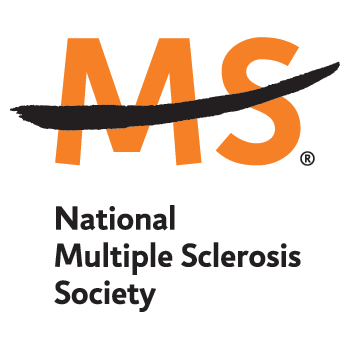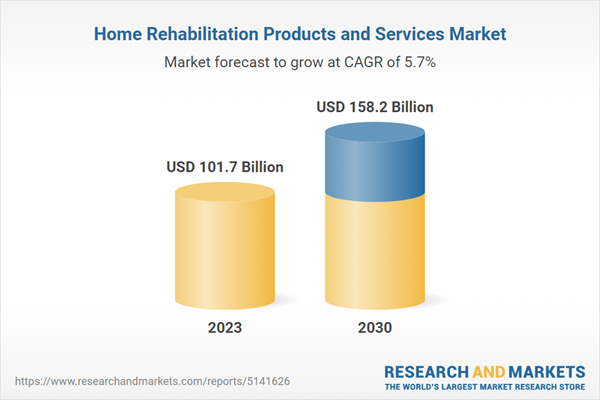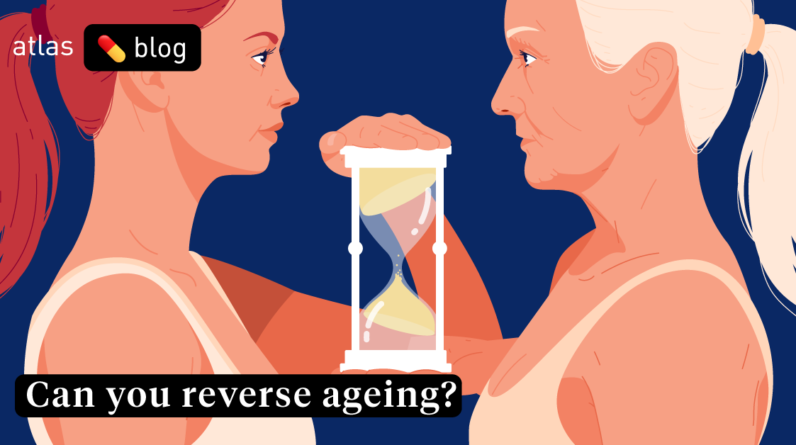
In her latest ebook True Age, pathology professor Morgan Levine makes the case to differentiate between two ideas of growing old. We’ve got a hard and fast age primarily based on our beginning, our chronological age, and a malleable, organic age, “which can be affected by our lifestyle selections.”
French author Victor Hugo said that our forties are the previous age of youth, whereas our fifties are the youth of previous age, however how a lot reality is there in our personal notion of age?
Morgan Levine (who just lately left the division of Pathology at Yale Unversity to affix Altos Labs, a biotech firm attempting to decelerate human growing old) tries to persuade us how the cutting-edge analysis on growing old ought to make us suppose extra critically about lifestyle and never solely about heredity.
 “Nude Previous Man within the Solar” (oil on canvas by Mariano Fortuny, 1871); Fortuny was influenced by the type of Jusepe de Ribera; click on over the picture to see it intimately with the Prado Museum’s multimedia device
“Nude Previous Man within the Solar” (oil on canvas by Mariano Fortuny, 1871); Fortuny was influenced by the type of Jusepe de Ribera; click on over the picture to see it intimately with the Prado Museum’s multimedia device
We are inclined to think about that the genes inherited from our ancestors are the one actual culprits of how heredity manifests. Nonetheless, this notion is mistaken since our physique, its well being, and the way in which it seems to be and ages is a dynamic system influenced by lots of of 1000’s of genes, a few of whom carry potential directions from earlier hominins but additionally different organisms corresponding to micro organism, “and the surroundings during which these genes are appearing makes all of the distinction to how we prove,” explains Journalist Carl Zimmer, creator of the 2018 ebook She Has Her Mom’s Chortle.
Based on Zimmer, “we can’t perceive the pure world with a simplistic notion of “genetic heredity,” and the favored notion of a correlation between genes and clearcut capabilities is a false impression: the Mendelian legal guidelines of inheritance are usually not simply “exquisitely fragile” however “repeatedly damaged.” Advanced traits come up out of the mixed motion of lots of of genes relying on the surroundings a person grows up in.
Relativizing genetics’ significance in growing old
To Morgan Levine, “solely 10-30% of our lifespan is estimated to be resulting from genetics”:
“The great factor, in contrast with chronological age, is that organic age is modifiable. We don’t but know precisely how one can modify it to the best extent, however the clock can be made to tick slower, and even probably go backwards, in response to our behaviors (although it can additionally velocity up). Step one is getting a sound and dependable measure of it, which my lab has been engaged on.”
The thesis is attractive: the youthful our organic age versus our chronological age, the more healthy the years forward of us. Even when genetic predispositions or some gathered unfavourable environmental imprints through the years can’t be altered, we can affect our organic age with wholesome selections and viable methods anyone can attain. To date, essentially the most vital barrier is entry to data on the matter:
“On common, individuals who fee youthful biologically, in comparison with others their age, have a tendency to not smoke, drink minimally, train repeatedly, eat extra leafy greens, eat much less purple meat, get higher sleep, and expertise much less stress.”
The affect of your behaviors and the surroundings
The sector of epigenetics (her specialty) is at least the “working system of the cell,” dictating the first operate of every one in all our cells: their metabolism, their directions to divide, or their position relying on their “epigenome” or operate directions (regardless of sharing the identical DNA sequence, neurons, and epidermal cells, for instance, assume their instruction roles).
However the cells’ epigenome —the chemical compounds that instruct the genome what to do bodily and functionally— don’t keep the identical as we age, and the way in which these directions change over time varies radically amongst individuals: our “true age,” that’s, how previous are we biologically, will depend upon how porous are we to the surroundings (how are we affected by occasions, work, air pollution, stress), and to the way in which we train, eat, or sleep.
Regardless that there isn’t any common approach to assess our organic age, scientists have constructed scales that make a guess relying on scores concerning irritation, liver functioning, and different predictors associated to the “epigenetic clock.” This scientific guess is extra exact than earlier measure programs such because the size of the proteins defending the extremities of the genes inside one particular person’s cells (telomeres) or the metabolic age rating, an equation proposed by a 1919 examine by Harris and Benedict that displays our health compared with our age.
Epigenetics research have improved within the final years, and their fashions analyzing gene exercise conclude that most individuals have a organic age that stays inside 5 years of their chronological age. Can lifestyle, food plan, and a greater surroundings make us a lot youthful than what our paperwork state?
Researchers like Morgan Levine are satisfied about it (Levine helped develop Index, an epigenetic measure licensed by at the least one firm, Elysium Well being, and was recruited in june 2022 by anti-aging biotech agency Altos Labs, backed by Jeff Bezos, amongst others).
DNA methylation regulates gene expression
As a substitute of ready for science to search out methods to extend our lifespan, instruments corresponding to epigenetics give decisive details about “gradual growing old,” irrespective of our chronological age. If the genome (the “elements” of our organism) stays the identical, the epigenome (or the way in which the potential throughout the genes manifests) will change relying on components corresponding to lifestyle and age.
Our cells management gene expression by way of an epigenetic mechanism known as DNA methylation, during which sure molecules flip “off” some gene exercise, dashing growing old in key components of the organism. Scientists can match samples of cells with scores of DNA methylation and inform the relation between the organic and the chronological age of an individual.
Some individuals’s “true age” is youthful than it’s in administrative phrases, and in different circumstances, the phenomenon is the alternative: irritation, continual stress, continual an infection or immune challenges, poor sleep, poor food plan, sedentarism, lack of relations, or struggling addictions are a few of the components that velocity organic age versus our chronological one.
If it’s not solely genetics however habits, how can the way in which we stay have an effect on our odds? Research set up the dilation between organic and chronological age in a number of years, however essentially the most important a part of it, argues Morgan Levine, is the way it can have an effect on the standard of life in previous age, to the purpose that:
“(…)if we may every gradual our growing old course of down by seven years in order that, at seventy, we had the organic profile of the common sixty-three-year-old, mortality danger from practically each main illness could be reduce in half.”
Avoiding “inflammaging”
Staying in fine condition as a lot as doable can dramatically improve life expectancy at a sophisticated age, as some individuals remaining lively at ever-increasing chronological ages already present. Even when our physique’s gene expression adjustments over time, “how rapidly or slowly our physique diverges from its as soon as youthful type will not be predetermined,” states Levine:
“Issues like injury and stress can speed up it (…). With regards to our our bodies, daily we’re alive, we encounter issues which will shift our configurations: radiation, poisonous chemical compounds, and damaging particulate matter.”
The hyperlink between continual stress and accelerated growing old is particularly regarding as we enter an period of vanishing boundaries between work, private life, and continuous digital leisure: research present how continual stress shortens the protecting extremities of chromosomes (telomeres) in individuals’s cells, weakening the safety and skills of genetic materials to make particular molecules and proteins, self-repair and divide correctly.
Persistent stress can additionally beget irritation and forestall the physique from self-adjusting as a low-grade continual swelling because of the overstimulation of our innate immune system. Consequently, the so-called “inflammaging” is the alternative of a wholesome response of the organism to battle viral and bacterial an infection by way of a brief immune response or managed systemic irritation.
The human physique’s means to self-regulate lies within the evolutionary benefits gathered in our relationship with environmental alerts: our organisms are open programs that take sources not just for survival, preservation, and copy but additionally to feed restore mechanisms that react to our lifestyle selections.
Injury, stress, or air pollution can shorten life expectancy and act as unfavourable stressors, but there are additionally constructive ones. Persistent phenomena corresponding to “inflammaging” can be prevented and even reverted by way of lifestyle methods that take us out of our consolation zone: research present how acute delicate stressors, from train to caloric restriction, time-restricted consuming and even “chilly remedy/stress” (common chilly showers or ice baths), profit our metabolism and reinforce our cells’ epigenetics.
The significance of getting a bit uncomfortable
Regulated environments sustaining a relentless temperature are detrimental to our immune response when dealing with both warmth or frigid environments throughout quick intervals. When uncovered to warmth, our cells produce warmth shock proteins, in response to perceived nerve-racking circumstances, countering an infection and irritation. In Scandinavia, the Baltic international locations, or Japan, amongst different areas, conventional publicity to cold and hot environments for brief intervals have been part of conventional leisure for hundreds of years; now we all know their advantages have a scientific base.
After a sauna, chilly publicity triggers hormetic stress or the best degree of publicity to stressors to set off useful physique reactions. Leaving the consolation zone in such a style has a number of advantages: a rise of the metabolic fee due to the activation of brown adipose tissue; elevated fats burning and utilization; improved insulin sensitivity and glycemic management; lowered irritation; improved temper; higher sleep; elevated alertness and focus; and enhanced stress tolerance.
There’s a caveat concerning acute delicate stressors, explains Morgan Levine in True Age. If delicate stress elicits useful responses in our immune system, very extended stress can have the alternative impact, “inflicting widespread injury and accelerating the speed of age-related decline.” Exercising an excessive amount of, consuming too little, or abusing bodily discomfort with actions corresponding to chilly remedy might be detrimental, whereas every particular person’s tolerance to delicate stressors may have a unique threshold, including to the present confusion in relation to guessing the tipping level between useful and detrimental methods.
The gathered proof on the advantages lifestyle can have in our high quality of life, and life expectancy ought to encourage anyone to comply with swimsuit, however we’re removed from simply quantifying our “true age” and, as soon as realizing our organic age, creating a personalised routine to maximise the long-term advantages of “gradual growing old.” Heterogeneity is just too widespread to permit any particular person, group, or establishment to generalize good practices as a result of what may match and can be scientifically reproduced for one examine inhabitants could not translate into different teams or cultures.
Methods to cut back organic age
Train transforms our immune system however not in the way in which drugs had historically thought: train doesn’t suppress the immune system; quite the opposite, it reinforces it in the long run. A 2018 examine printed in Frontiers in Immunology confirms that train additionally advantages the immune system within the quick time period by boosting self-defenses towards pathogens, lowering the chance of infections. Common train is one of the simplest ways to extend one’s “healthspain,” or the interval of wholesome growing old during which we can stay with no obstacle, versus age-associated illness and incapacity.
Although some generalizations can be backed with research and self-reported experiments (“biohacking“): we all know that the speed of organic growing old is extremely malleable, therefore expressions like “trying younger” or “trying previous” for our age have a organic basis that can be assessed. We additionally know that aware actions concerning lifestyle, habits, psychology, or the surroundings, will have an effect on our organic age.
Requested about why “organic age” vs. “chronological age” is vital, Morgan Levine argues that epigenetic growing old (growing old on the scale of cells) is a vital predictor of life span and illness: when cells divide, they replicate their DNA, however this copy doesn’t occur suddenly throughout your entire genome, with the areas most utilized by the cell replicating first and the areas which are turned off copied on the finish. Research present that each growing old and most cancers reap the benefits of the larger odds of getting altered patterns within the technique of DNA copy within the “early” and “late” replicating areas.
A weak replication introduces a much bigger danger as a result of the injury in areas that produce proteins and molecules serving to stop injury could block key response mechanisms activated by occasions corresponding to environmental hazards, mobile or organ malfunction, and many others. Biohacking speculates with the opportunity of deeply “reprogramming” or “reset” our epigenome to stop additional deterioration. By mirroring a younger epigenome due to environmental adjustments, may the directions inside our cells regain their prime?
“It’s doable that cells which have acquired random errors merely “bear in mind” their preliminary blueprint and can restore it when signaled to. One other risk, nevertheless, is that the adjustments we observe within the epigenetic sample are merely a response to one thing within the growing old surroundings and that they can be turned off or reversed beneath the appropriate circumstances.”
Not solely what you eat, however when
The rise of higher methods of measuring how nicely our cells behave on the biochemical degree (by way of the molecular technique of methylation) might be the start of a brand new area of personalised growing old, one during which fine-tuned growing old profiles up to date over time may function a blueprint to counter genetic and environmental fatalism with a proactive technique to age “higher,” and doubtlessly stay longer, remaining totally practical at very superior chronological ages.
To date, the prevailing, confirmed mechanisms to decelerate and doubtlessly reverse the results of the growing old course of within the physique don’t depend upon costly, unique high-tech therapeutics however somewhat on old-school widespread sense: consuming nicely, principally leafy vegetation and not an excessive amount of (as put by Michael Pollan a number of years in the past); train day by day, typically past one’s personal consolation zone; sleeping nicely and repeatedly; and introducing a number of “acute delicate stressors,” from shortening the quantity of ours inside a day during which we eat, to exposing our physique to chilly showers (or another confirmed cold-exposure remedy). Discover and know one’s limits, so the mix doesn’t do too little not an excessive amount of.
Not consuming an excessive amount of wouldn’t suffice, however consuming healthily helps keep away from accidents throughout and after train. Extra surprisingly, latest research present that meal timing additionally issues, affecting our circadian rhythm, the standard of our sleep, or the sources our physique must course of meals. Specialists corresponding to Satchin Panda, a biologist specializing in circadian rhythms, relate time-restricted feeding (limiting our “feeding hours” in the course of the day to 12 consecutive in complete) to regulating urge for food, gastrointestinal operate, nutrient absorption, pancreatic insulin secretion, and liver (hepatic) enzyme exercise.
Is there a “true” age? Or plain advertising and marketing spin?
A seminal evaluate examine printed within the British Medical Journal involving 8,762 male contributors over 2 many years discovered that “muscular energy is inversely and independently related to loss of life from all causes and most cancers.” Muscular energy has additionally been related to lifespan. A latest examine amongst 4,449 contributors over 50 years previous discovered that loss of life from all causes was 2.66 instances increased in these with low muscle energy, and several other research have discovered a hyperlink between grip energy and wholesome growing old and longevity.
Shawn Wells mentions these research in his sensible ebook The Power Formulation, during which he reminds readers of the principle advantages of resistance coaching: enhances muscle energy; helps scale back visceral fats; helps enhance insulin sensitivity in coping with carbohydrates; improves blood stress; can improve bone mineral density (BMD); can defend towards accidents; and improves cognition.
Was it widespread sense (or, as a substitute, “advantage” within the classical coaching prescribed in Classical instances) all alongside?
If all of it comes right down to the equal of “advantage” in historic Greece (a mix of moderation, bodily train, and psychological cultivation) plus a nutritious diet just like the Mediterranean with little meat, leafy greens, and wholesome carbohydrates in modest intakes and inside 12 hours (time-restricted), why packaging it right into a marketable, costly service if it might be part of the way forward for personalised well being, doubtlessly reasonably priced and so scalable it may goal at universality?





